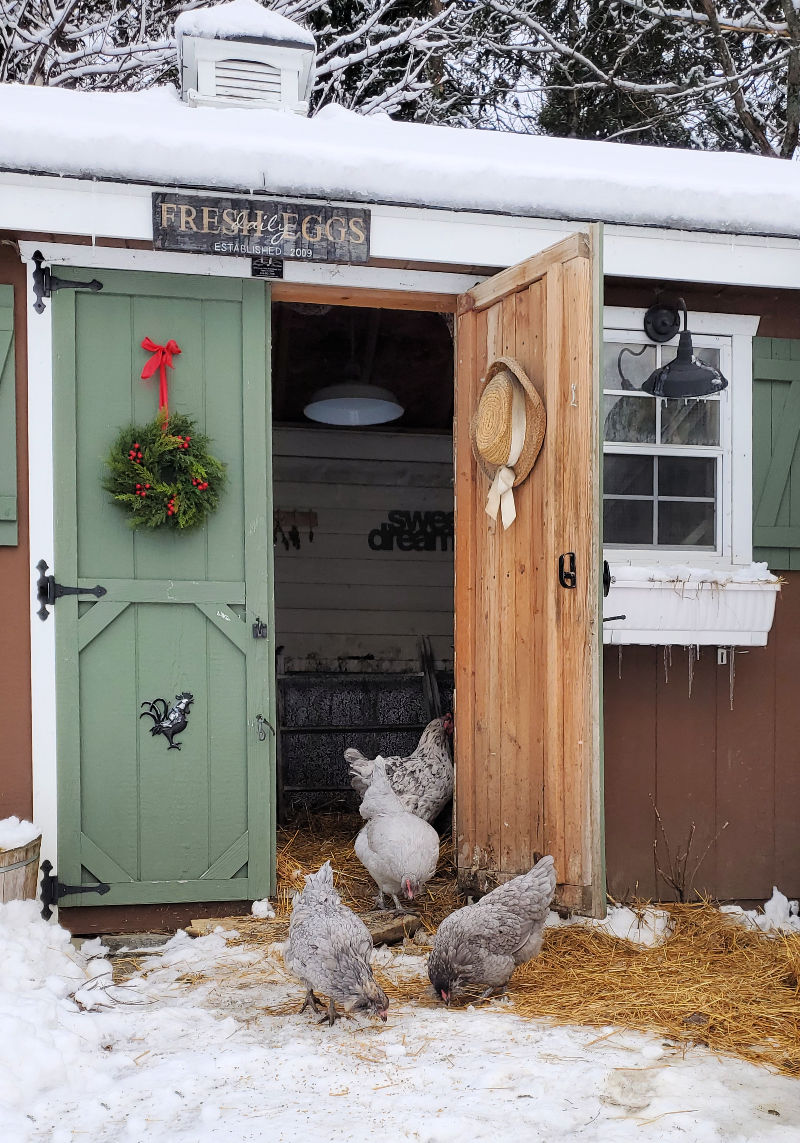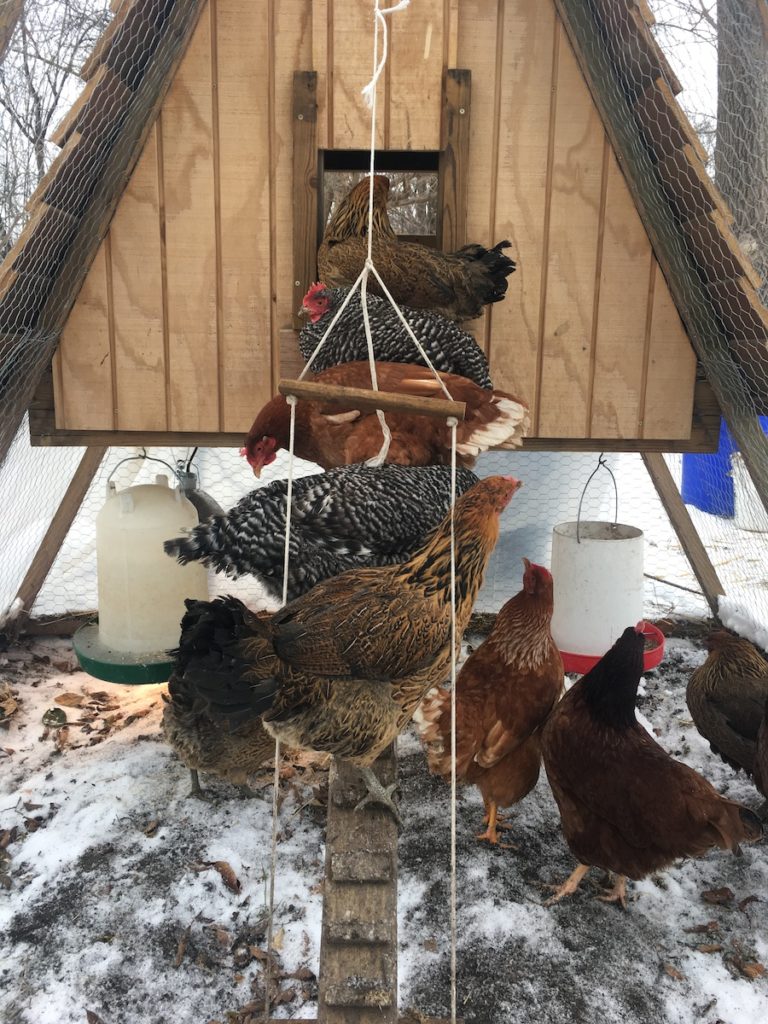Preparing for a successful winter chicken run in chicken husbandry is essential for any poultry farmer. With the colder weather, a winter chicken run requires specific steps to ensure the health and safety of the chickens and the success of the operation. This guide will cover the best practices for preparing for a winter chicken run, from proper housing and nutrition to managing risks and ensuring a healthy flock. With the right plan and preparation, you can ensure a successful winter chicken run for your poultry farm.
Preparing the Chicken Coop for Winter

Insulation
To ensure your winterized chicken coop can protect your chickens from the cold winter weather, you need to make sure it is properly insulated. Insulating the walls, windows and roof of your coop can help to keep the heat in and the cold air out. You can use materials like foam, batting or blankets to insulate the coop.
Ventilation
It is important to make sure that your coop is properly ventilated to keep your chickens healthy and safe during the winter months. Installing vents near the top of the coop can help to keep the air circulating and the temperature regulated.
Heat Sources
A good way to keep your chickens warm during the winter is to install a heat source in the coop. You can use a heat lamp, an electric blanket, or even an electric heater to help keep the coop warm and cozy. Just make sure that any electrical heat sources are properly insulated and out of reach of your chickens.
Pest Control
Pests can be a problem in any chicken coop. In the winter months, rodents and other pests may be looking for a warm place to hide. You can help to keep pests out of your coop by sealing any cracks or crevices, and installing mesh on windows and doors. You can also use bait traps and baits to help keep pests away.
Preparing the Chicken Run for Winter
Covering the Run
Covering the chicken run is essential for keeping the chickens safe and warm during the winter months. The cover should be waterproof and should be securely fastened to the run. If the run is made from wood, then a tarpaulin is the best material for covering it. The cover should be weighted down at the edges to prevent the wind from blowing it away.
Adding Insulation
Insulating the run is also important for keeping the chickens warm and dry during the winter. Straw is the best material for insulating the run, as it is lightweight and can be easily added or removed as needed. The straw should be replaced regularly and should be kept dry to ensure that it is effective in keeping the chickens warm.
Constructing Shelters
Constructing shelters in the run is also important for providing the chickens with a safe and warm place to sleep. The shelters should be well-ventilated and should be protected from the wind and rain. They should also be big enough to accommodate all of the chickens in the run.
Adjusting the Run’s Environment
In order to ensure that the chickens remain healthy and safe during the winter, it is important to adjust the run’s environment. This includes providing the chickens with a source of light and heat, as well as making sure that the run is kept clean and free from drafts. By doing this, you can help to keep the chickens comfortable and healthy throughout the winter.
By following these steps, you can help to ensure that your chickens are well-prepared for the winter months. By taking the time to winterize the chicken run and make the necessary adjustments, you can help to create a safe and comfortable environment for your chickens and ensure that they remain healthy throughout the winter. With the right preparation, you can help to make sure that your chickens have a successful winter chicken run.
Frequently Asked Questions
What Equipment Do I Need To Set Up A Successful Winter Chicken Run?
To prepare for a successful winter chicken run in chicken husbandry, you need the following equipment:
- Protective Coop: Make sure the coop is well-insulated to keep chickens warm and dry during cold winter months. Add extra bedding to the coop for extra warmth.
- Predator-Proof Fence: Install a strong fence around the run to protect chickens from predators.
- Heated Water Supply: Provide chickens with heated water to prevent freezing during winter months.
- Feeders and Waterers: Install feeders and waterers in the run that are accessible to chickens.
- Lighting: Install lights in the run to provide chickens with natural light and warmth.
By having the right equipment, you can ensure that your winter chicken run is safe and comfortable for your chickens.
How do I protect my chickens from the cold weather?
Chickens can tolerate cold weather if they are healthy and have access to shelter. To ensure your chickens are safe in cold weather, provide a draft-free coop with plenty of insulation and ventilation. Consider adding a heat lamp or other heating source in the coop to keep the temperature above freezing during extreme weather. Increase the amount of bedding in the coop to create an additional insulation layer and provide your chickens with additional food to help them generate body heat. Keep an eye on your chickens during cold weather and make sure they are not showing signs of distress.
What Kind of Food Should I Provide for My Chickens During Winter?
During the winter months, it is important to provide your chickens with a high-calorie, nutrient-rich diet. Avoid providing too much protein as this can lead to health problems. A good mix of grains, such as wheat, corn, oats, and barley, as well as some greens, such as kale and spinach, should be included. You can also provide layer pellets, which are specially formulated for chickens and contain important vitamins and minerals. Scratch grains, mealworms, and other treats can also be added as occasional treats. Water should also be provided at all times, and it is important to keep it from freezing in the colder weather.
How do I ensure that my chickens stay healthy during winter?
Ensuring that chickens stay healthy during winter requires taking several steps. Firstly, it is important to provide adequate shelter for your chickens. Make sure their housing is well insulated, and provide access to natural light. Secondly, provide your chickens with plenty of high-quality feed to ensure that they get the nutrients they need. It is also important to keep their water from freezing by providing insulated water containers or heaters. Additionally, make sure that your chickens’ coop is clean and free from drafts. Finally, provide your chickens with extra bedding to keep them warm and comfortable.
What are some tips for keeping my chicken run clean during winter?
- Keep the litter dry: Litter needs to be kept dry in order to prevent the chickens from getting chilled and wet. Spread a fresh layer of bedding, such as straw or wood chips, in the chicken run. This will help to keep the chickens warm and dry.
- Clean the run regularly: Regularly clean the chicken run to remove any food scraps or waste. This will help to reduce the spread of disease and help keep the run clean and hygienic.
- Remove ice from the run: When temperatures drop, ice may form on the walls and floor of the chicken run. This needs to be removed as it can become slippery and make it difficult for the chickens to move around. Use a shovel or brush to remove the ice.
- Cover the run: Covering the chicken run with a tarp or plastic sheeting can help to keep out the cold winds and provide some protection from snow and rain. Make sure it is securely fastened and that the chickens can still get access to food and water.
- Provide extra bedding: Add extra bedding to the run during the winter months to provide the chickens with extra insulation. This will help to keep them warm and protect them from the cold.
- Monitor for parasites: Monitor the chickens for signs of parasites such as lice and mites. These can spread quickly in cold weather, so it is important to take preventive measures to keep them away from the chickens.
Conclusion
Properly preparing for a successful winter chicken run in chicken husbandry requires careful planning and attention to detail. Start planning out the details of the run early to give yourself enough time to get everything in order. Get the right materials, such as a suitable housing, feeders, and waterers, as well as enough feed and supplements to keep your chickens healthy and happy. Finally, keep an eye on the health and welfare of the birds and make sure they have enough space to move around. With these tips, any chicken husbandry can have a successful winter chicken run.
